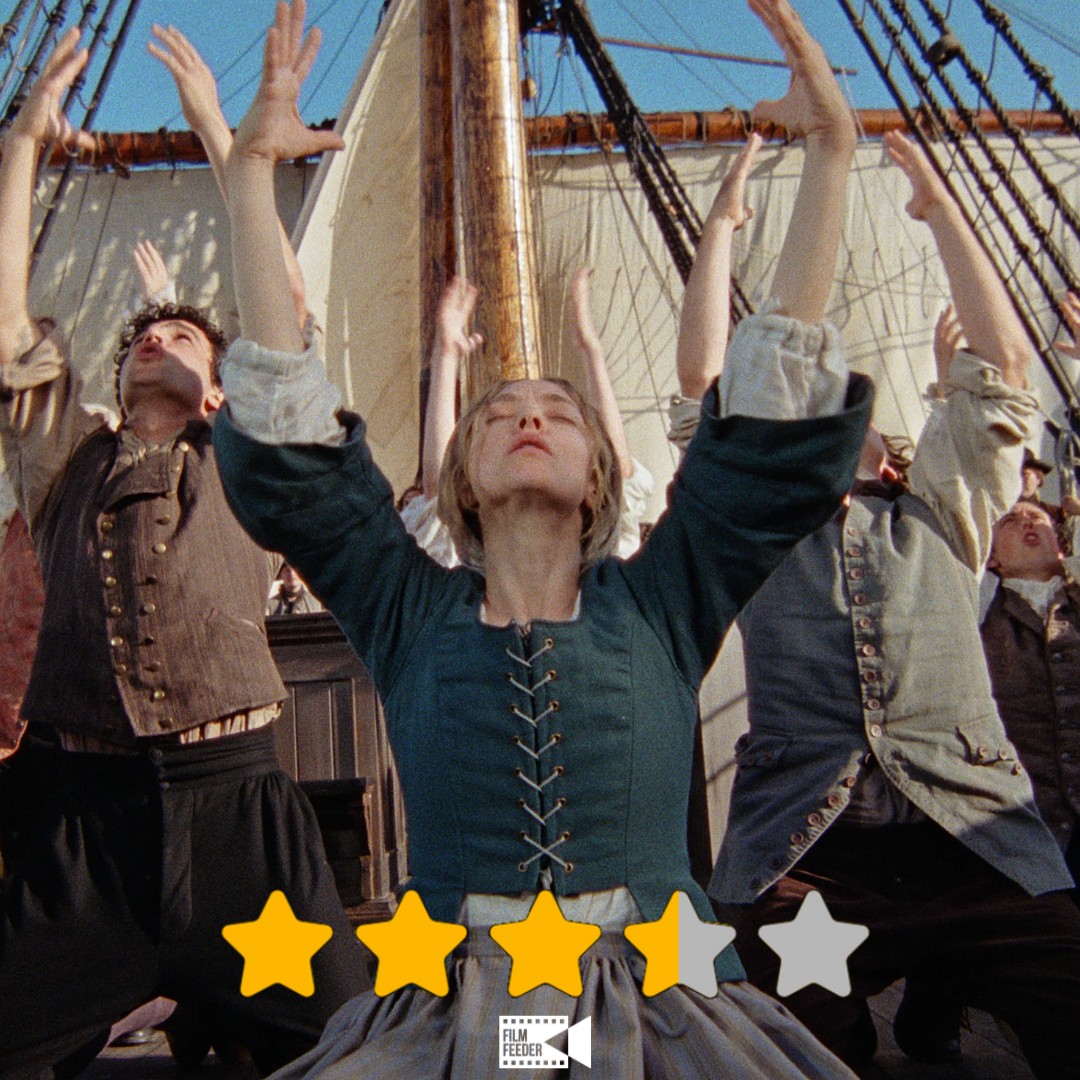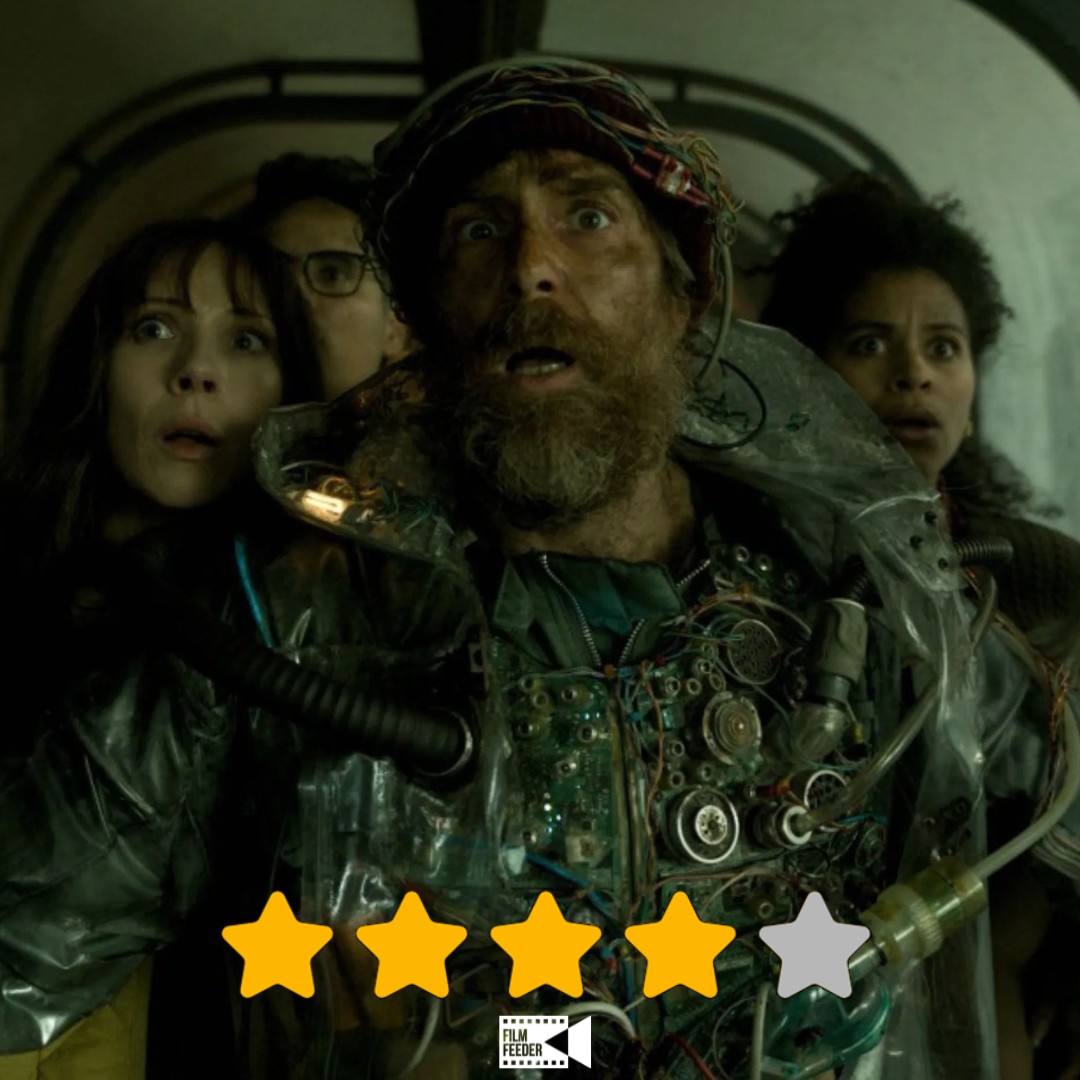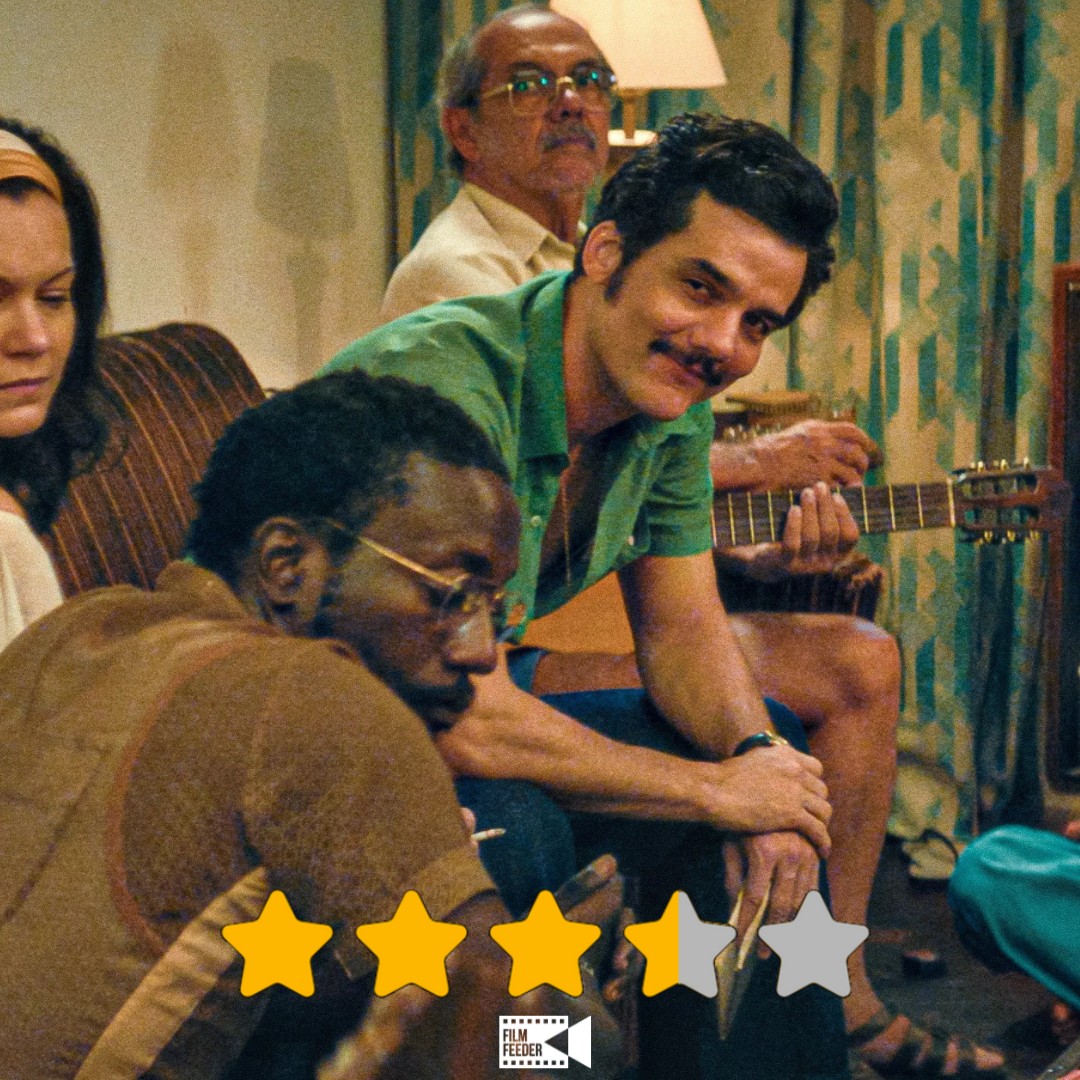
Restless (dir. Jed Hart)
Certificate: 15
Running Time: 89 mins
UK Distributor: Metis Films
UK Release Date: 4 April 2025
WHO’S IN RESTLESS?
Lyndsey Marshal, Aston McAuley, Barry Ward, Kate Robbins, Denzel Baidoo, Matt Emery, Ciara Ford
WHO’S BEHIND THE CAMERA?
Jed Hart (director, writer), Sophie Ede, Harri Kamalanathan, Jens Nielsen, Iain Simpson and Benedict Turnbull (producers), David Bird (cinematographer), Anna Meller (editor)
WHAT’S IT ABOUT?
A lonely woman (Marshal) deals with her loud new neighbours…
WHAT ARE MY THOUGHTS ON RESTLESS?
At first glance, filmmaker Jed Hart’s debut feature Restless seems like just another entry in a category of movies that feel as though they’ve been genetically engineered to ruffle the feathers of pearl-clutching Daily Mail readers (see also: Harry Brown, Eden Lake, or basically any other movie that presents certain pockets of working-class society as refutably, irredeemably evil).
But unlike those other examples, there’s something deeply unsettling – and surprisingly funny – about how Restless presents a seemingly black-and-white situation as the catalyst for the slow but certain unravelling of someone who is driven to their breaking point. Hart’s film is fierce in its portrayal of the growing divide between aspects of society that cannot and do not go well together, especially when one aspect is so unreasonable in its destructive nature that it causes another to make desperate last resorts in order to get the one-up over them. Yet, its approach is also extremely cathartic, not to mention filled with unexpected moments of pitch-black comedy that give a real human face to the all-too plausible circumstances.
In the film, Nicky (Lyndsey Marshal) is a middle-aged care home nurse living in her semi-detached house on a council estate, and with her son off at university and her parents – who lived in the house next door – both gone, she’s all on her own. However, she’s in for the rudest of wake-up calls when thirty-something party animal Deano (Aston McAuley) moves into her parents’ home, and almost immediately starts blaring loud house party music from the other side of the wall, keeping Nicky awake all night long. Attempts to reason with the volatile Deano, or even get other neighbours and the local authorities involved, prove depressingly futile, leaving Nicky to lose more and more sleep as the obscenely loud nights continue, until she begins to take matters into her own hands to finally shut her new neighbour up.
As justified as Nicky’s actions may be, the real concern is how much more mentally unstable this character is becoming as the film goes along. There is a deep discomfort in seeing a perfectly decent individual becoming consumed by the psychological torture she is being subjected to by her nightmarish neighbour Deano, whose extraordinarily selfish behaviour forms its own brand of sadism, to where it almost feels like you’re watching an increasingly disturbing intense cerebral breakdown akin to The Shining or Roman Polanski’s Repulsion. On the flip side, one could make a very slim argument that Deano is exactly what Nicky needs, in the sense that he wakes her up from a different kind of slumber where she’s creeping steadily towards a reclusive existence befitting someone of her age, and his domineering presence gives her something to work towards and regain some of the youthful energy she’s otherwise let expire.
Lyndsey Marshal really sells her character’s descent into chaos, as you feel her frustration at every single roadblock she faces, as well as an enormous sense of relief in the rare few moments when things seem to finally go her way. Beyond the fractured psyche of someone undergoing extensive sleep deprivation, the actor brilliantly encapsulates the much deeper anxieties that were already there within this character long before the new neighbour showed up, from the burning fears of loneliness (to where she eagerly goes on a date with Barry Ward’s dim-witted Kevin just to sleep peacefully in his bed) to the creeping fact that all one wants to do at this stage in life is peacefully watch snooker and get an early night.
Of course, an early night is something that Nicky is cruelly denied throughout, but rather than letting the bleakness of the situation dominate, Hart infuses some welcome moments of dark humour to make it more palatable. While the borderline cartoonish cruelty of Deano and his fellow inconsiderate ravers brings about several moments of intensity, therein also lie parts that are so uncomfortable – like how their pure pettiness drives Nicky to commit a dangerous act teased in the film’s admittedly unnecessary opening stinger – that the extremity of it all is ridiculous enough to laugh at, intentional or otherwise. Other performances feel as though they’ve come from a much lighter straightforward comedy, particularly Ward who’s always one awkward line delivery away from a studio audience laugh track, but Hart is a focused enough filmmaker to weave them in and out whenever required, to a point where they don’t feel too out of place and, in some cases, even score the laughs that they’re seeking.
Comedic moments aside, Restless works best as a tense revenge thriller, one that gives the audience a worthwhile hero and villain to respectively root for and against, offers plenty of reasons to understand why the former is going after the latter, and delivers one hell of a satisfying payoff for at least one of them by the end. Moreover, it’s an impressive calling card for Hart who, with his feature debut, displays a confident directorial style that isn’t afraid to blend some abstract sequences into the naturalistic environment without distracting from the overall goal of his narrative.
It’s a bleak, yet unexpectedly humorous, study of madness that is bound to piss off Daily Mail readers – which is all the reason you need to seek this film out.
SO, TO SUM UP…
Restless is an intense and surprisingly funny study of the psychological breakdown within an increasingly unhinged sleep-deprived individual, which serves as a fine calling card for both debut filmmaker Jed Hart and lead actor Lyndsey Marshal who anchors the film with a brilliantly layered performance that brings immense satisfaction.














0 Comments